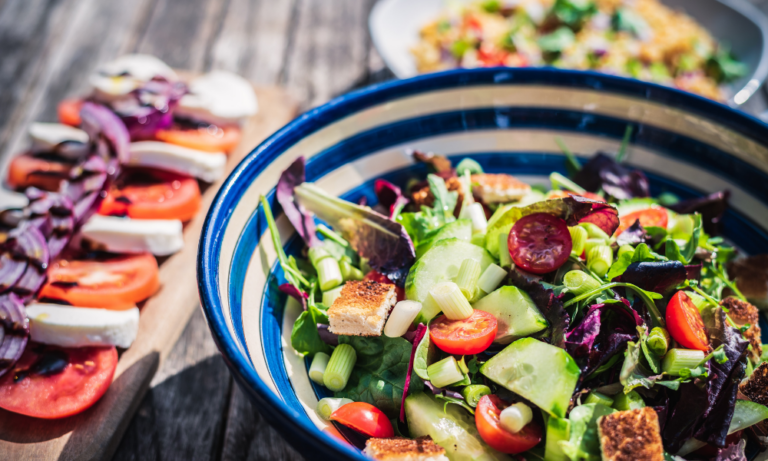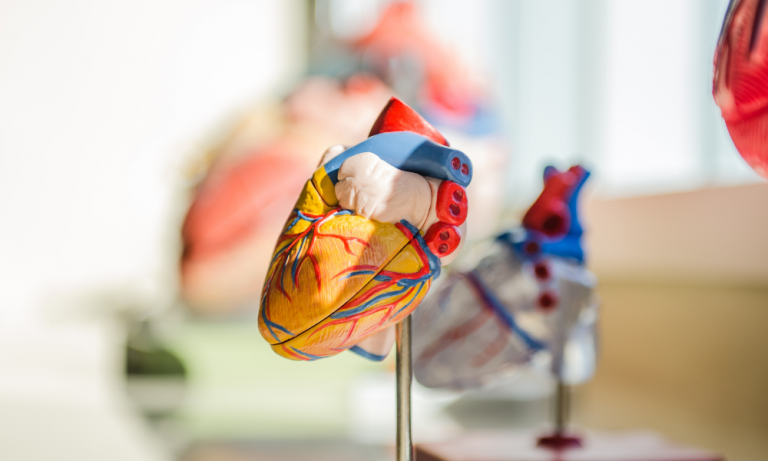Questions and answers: heat and cardiovascular health
Foundation, in collaboration with Professor Daniel Gagnon
Home > Blog > Questions and answers: heat and cardiovascular health
Summer is nearly in full swing, which means the risk of heatstroke has increased. Professor Daniel Gagnon, researcher at the Montreal Heart Institute, answers your questions on how heat can affect your cardiovascular health.
How does heat affect the heart?
Answer: Hot weather dilates your blood vessels and leads to an increase in sweating. These physiological responses allow the body to release heat and control its internal temperature. However, dilated blood vessels divert blood from internal organs to the skin to make it easier to release heat and to compensate, the heart needs to pump more blood which increases your heart rate.
For most people, these changes are not dangerous. But for others, these responses could endanger their health.
Who is at risk of heatstroke?
Answer: Some people are at a higher risk of heatstroke. For instance, people who:
- are addicted to alcohol and/or drugs
- have been diagnosed with a heart disease, a respiratory disease, a skin disease, or a mental disorder
- are overweight
- suffer from dehydration
- are under 15 years of age or over 65
- have a low socioeconomic status
- have a physically demanding job and are exposed to the heat (for example: firefighters, construction workers, labourers, etc.)
Other factors can increase a person’s risk of heatstroke, such as:
- not having an AC system at home
- living in a high-rise building
- extended exposure to the sun
- wearing clothing that is too warm for the weather
At what temperature are people at risk?
Answer: There is no specific answer to this question. A heat wave involves two metrics.
The location
First, a person’s location needs to be taken into consideration. For instance, people living in Africa generally tolerate heat better than those living in Quebec because they’re used to a hot and humid climate.
The duration
Second, a heat wave occurs when temperatures remain high over a consecutive period of days. The higher the temperature above average over an extended period of time, the greater the risk of heatstroke.
What are the symptoms of heatstroke?
Answer: Pay attention to the following symptoms to protect yourself and loved ones form heatstroke:
- internal body temperature over 40 °C
- change in the skin’s appearance (red, dry, or moist)
- headaches
- excessive sweating
- swelling or puffiness in the body’s extremities
- dizziness or fainting
- nausea or vomiting
- rapid breathing or elevated heart rate
- change in mental state (confusion, convulsions, coma, etc.)
- excessive thirst
- less frequent urination and darker urine
What should I do if I think I’m suffering from heatstroke?
Answer: If your condition or the condition of a loved one deteriorates, call 911 or head to your nearest hospital.
While waiting for emergency responders, try to lower the body’s temperature. You can:
- move to the shade
- remove some layers of clothing
- apply cold compresses
How can I prevent heatstroke during a heat wave?
Answer: There are several ways to reduce the risks of heat stroke. Here are a few simple actions you can take during heat waves:
- drink lots of water to stay hydrated
- avoid drinking beverages that are high in caffeine, theine, and sugar to prevent dehydration
- avoid working out or engaging in physically demanding activities
- avoid wearing black or dark clothing and wear a hat
- frequently apply sunscreen
- if you live near water (pool, lake, river) take a dip several times a day
- apply cold compresses
- wear a shirt soaked with cold water
- use a fan to increase a room’s air flow, but only if the temperature is under 38°C
Do you care about patients’ needs and want to support prevention?
donate today






